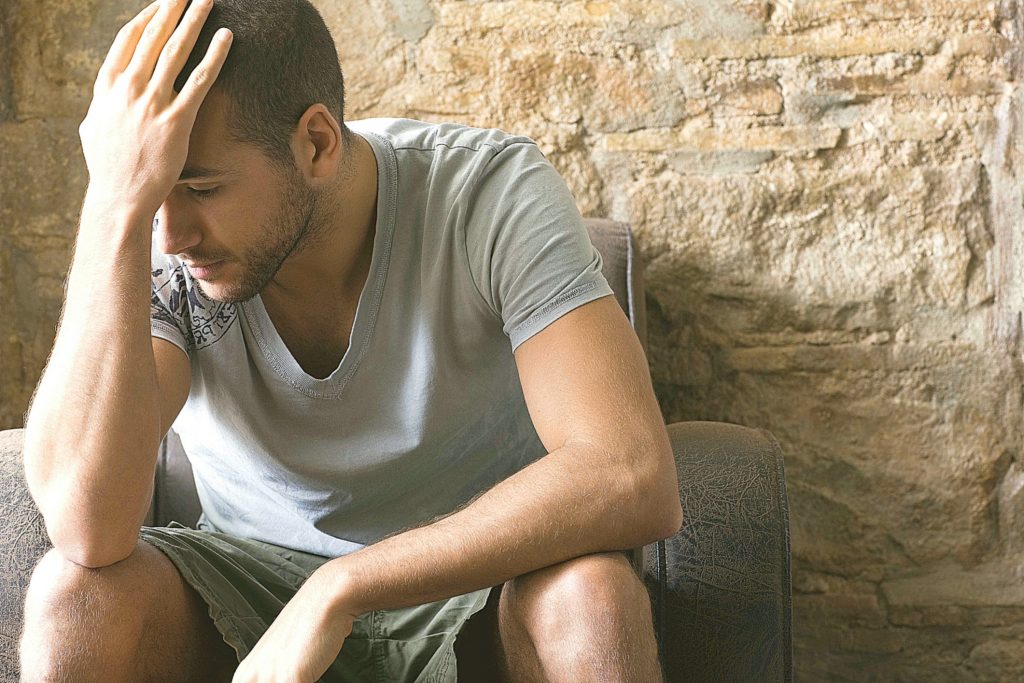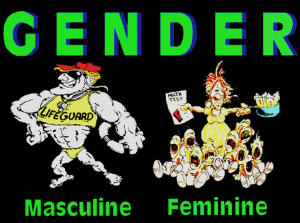Why Men Feel Depressed When They’re Expecting: An Interview with Dr. Daniel Singley on Men’s Peripartum Depression

We’ve heard about women suffering from postpartum depression but we seldom hear cases on men. Through Dr. Daniel Singley, let’s learn how he got inspired to study men’s peripartum depression, why new fathers have this condition, how men differ from women in expressing depression, and what we can do to help.
Peripartum depression, simply put, means depression in pregnancy and postpartum (after the birth) depression. Mental health experts prefer this term over postpartum because this depression usually starts during pregnancy. A quick Google search will tell you that this is mostly associated with mothers. However, studies have shown that men, especially new fathers, suffer from peripartum depression.
Note: Because this interview was done via Skype, some words not affecting the content were removed for clearer conveyance.
Apart from researching and practicing several psychotherapies, you also specialize on men’s issues with particular emphasis on parenthood. It is a newfound interest for me and I’m wondering if you can touch a bit on what the research is for our audience who may be learning about you and the topic for the first time. (Dr. Singley then asked about the audience of Psych2Go)
It’s actually very, very relevant for millennials because the current generation of parents (and so my research is especially on fathers), the current generation of millennials who are having children are expected to be a lot more involved as parents with their children starting in pregnancy, in birth, and much more involved with newborns and infants and very young children than previous generation’s fathers gave been. The problem is that, stereotypically, the current generation of fathers, their own fathers were not all that involved in that same way. And there aren’t a lot of really good models for these new dads these days, the millennial dads. They kinda know that they are supposed to be involved but in many cases, they just don’t know exactly how to do that so in that sense, I do research on what is being involved, how can organizations or institutions engage these dads and be more involved so that’s one way.

The millennial dads know that they are supposed to be involved but they lack role models?
Yeah, generally speaking, in most of the different cultures that I’ve spoken to…in Europe, Australia, and even in the Philippines, Taiwan, and Korea, for example, across the world, the current generation of new fathers are expected to do more than the previous generation but they just don’t have much model, they don’t have much guidance about how to do it. I call it the fatherhood generation gap.
Moving on to your personal inspiration, may I know what inspired you to study men’s issues especially in relation to parenting?
Yeah, so I’m a psychologist and there’s an old saying that good research is me-search meaning the research is personal. Really, my interest in men’s issues is rooted in the fact that I’m a man and so when I was in graduate school, I started focusing on whiteness (I’m a white man) so I started focusing on white privilege and white racial identity development. When my wife became pregnant and I realized I’m gonna be a father of a soon, then my masculinity, being a man, became much more important to me and it’s one of those things that if you ask your average guy “what does it mean to you to be a man?”, “what does your masculinity mean to you?”, he probably won’t have that much to say. He’ll say things like “well, it means being a man, being strong and independent and like that but he’s not really gonna have thought very carefully about “what does that mean to me as a person and my identity?” It’s always gonna sound like a Hollywood movie—you know, “I’m strong and tough and I take bullets from people” and like that.

So it was becoming a parent that got me focused on men and masculinity and then, another really important event was when I was at the university here in San Diego, at the University of California San Diego doing an internship, a local psychologist came and he talked about the psychology of men and masculinity and he talked about new fatherhood and his name is Jeff Jones and Jeff has become a major mentor for me but he was the first person who ever, ever brought up masculinity in psychology. No one throughout my entire graduate school career ever spoke about it and when he talked about it, it just opened my eyes to this area that subsequently has become really important.
You mentioned about men and masculinity and I just want to relate that to your article “Men’s Peripartum Mental Health: Yes, It Actually Exists” you said that one in ten fathers develop peripartum depression, how is that related to your idea of men and masculinity and its prevalence? Why don’t we know much about it?
Part of it is that when we think about perinatal mental health, or peripartum or postpartum depression, we don’t usually think about the dads, we think about the mom. It’s much more common to think about postpartum depression on perinatal depression and we’re focused on moms but like you said, several really, really solid research studies and meta-analyses in this area have shown that about 10% of new dads experience significant symptoms of depression but the problem is both men and women are socialized to not think of depression as a men’s issue, in particular the postpartum depression. For men ourselves, men stereotypically underreport problems and we have real problems asking for help and asking for support and so that’s another reason why men tend not to get that type of support.
Another issue is sometimes the way that men will manifest the symptoms of depression is very different than the way a lot…we think of someone who’s depressed, they’re vegetative, they can’t get out of bed, they are crying, weepy, and you know, upset and like this. For many men, the way that we express depression is it looks like anger, it looks much more like irritation, frustration, and being short with people. They were also much more likely to withdraw from relationships and be much more isolative. Even if we’re around people, we can sort of withdraw and pull back and not be very connected or show up in those relationships.
And then the third piece that’s very common in so-called male type of major depression or masked male depression is increased substance use or drinking more prescription stuff or other kinds of illicit drugs. So if you put all that together and think about it in perinatal mental health picture, let’s say a dad has a new baby and he looks really irritated and frustrated, he’s withdrawing from relationships and is drinking a lot more than usual, for example, even a lot of people in mental health, they’re not gonna put all that together and think “Hah! Maybe he’s depressed.” They might think, you know, he’s just an a**h*** or something, he’s just being a bad guy. If you’re not a mental health professional and you’re not used to thinking about men’s issues, you might not put that together and think that, “Hah! He’s depressed in a guy way.” That’s part of the whole “Yes, It Actually Exists” but sometimes, it just looks different.
Related to that, the symptoms of peripartum depression that are commonly exhibited may not be attributed to peripartum depression, so what if a man displays these symptoms in their day-to-day life, how do we know if a father’s reaction demand psychological intervention?
It’s a really, really good question and the short version of it is you wouldn’t know that except if the guy seems like he’s having difficulty, he’s drinking more than he’s used to, he’s staying at work longer than he has to, he’s not doing the things in his life that generally seem like he has enjoyed them or he seems to resent the baby, or the conflict with his partner is getting a lot worse or like that, it would really be a good idea to have him talk to someone. Usually, he doesn’t wanna talk to a therapist like your average guy would rather hit himself in the face with a brick than talk to a psychologist and I understand that and so the person he could talk to could be like his grandfather, or a priest, or a friend of his, or like that. But if things persist, he’s really, really having difficulty, then it’s a good idea to get to him “Hey, you really should go talk to somebody and then maybe a counselor.”
What are the challenges that you have encountered in studying men’s issues and fatherhood?
One of them is what I made reference to before is your average guy would rather not talk to a psychologist so half the time, it’s what I call the butts-in-seats problem. You just gotta work to get the butts in seats because there’s a real stigma about having mental health [issues] in all cultures, in any culture, there is going to be a stigma against having mental health issues. Well, that stigma is almost always worse for men so if people, men and women, aren’t supposed to have mental health difficulties and there’s shame associated with that, it’s way worse for men—they’re supposed to be strong, nothing bothers them, and like this. To keep that point going, they’re really not supposed to be having mental health difficulties or suffering right after the birth of a child. When you have a child, you’re supposed to be “oh, it’s the happiest time of my life, and rainbows, unicorns, and everything perfect” so it’s really, really hard for a guy, struggling with mental health difficulties in the perinatal period. There’s so much stigma and shame associated with it. That to me is the number one issue.

With International Father’s Mental Health Day which you co-founded with Mark Williams Row, what kind of breakthroughs do you anticipate?
We had it on June 19th. It wasn’t so much of a breakthrough as much as it is working against the stigma that I just mentioned. What Mark and I and other group of people that we’re connected with did is we used our Facebook page, Youtube, and Twitter and like this, and what we tried to do was just to raise awareness that fathers have mental health needs, that we have some unique mental health needs that most people aren’t really focused on, and just to try to get the word out to be thinking about men have mental health needs. Part of the difficulty…is that fatherhood is so generally thought of as a provider role like fathers are protectors and providers and we give people money, we provide resources, we keep food on the table, we keep the lions and tigers away from our children, and then keep them alive, that we oftentimes don’t stop and think about that it’s not just being a protector and a provider but the dad is very likely to have some stresses that go along with becoming a father and so just giving voice to that is what we tried to do with International Mental Health Day.
What progress do you expect in the area or field of father’s mental health as a result of your research?
I expect that progress will be slow but hopefully it will be steady. The immediate progress that I’m working on with my research team is we’re working to be very rigorous and concrete about clarifying what father’s involvement with their infant really looks like. Historically, in research that looked at father’s involvement and how’s that related to the child outcome or to the mother, in the beginning of it, they defined father involvement as — they would just ask the mom, “is the father living with you?” – “ok, he’s involved” and that was it. They weren’t even asking the father so what my team has been more focused on doing is to really say, these days, in contemporary society given that fathers are much more involved, what does that involvement look like. So we developed a scale (and we had it published earlier this year) that really breaks out these domains of, well, there are some behaviors that are related to positive engagement or another one is warmth and attunement or control and process responsibilities and what are the specific behaviors.
And then we look at what are the aspects of the child, of the relationship with the mother, like the quality of their relationship or conflict, and then what are some of the psychological aspects of the father—his confidence, social support, financially and so forth, what predicts him more highly involved. So the first step is we want people to think in a more concrete way about what father involvement with infants really looks like and then the next step is, we really wanna draw attention to what are the factors of the child, the father, his partner, the relationship which then empower him or enable him be really involved.
What piece of advice can you give to new or expectant fathers out there?
I think most importantly, be aware they might struggle during the process and if they find themselves struggling in some ways, don’t just stuff it and try to move on—actually, go talk to somebody.
 The second thing I want to say is ideally, talk with other dads, connect with other dads, or people that can mentor, and be role model, even if their own father or their own father figure maybe wasn’t that involved, go talk to other dads. Men really do well when they are part of a team so getting that information really tends to help.
The second thing I want to say is ideally, talk with other dads, connect with other dads, or people that can mentor, and be role model, even if their own father or their own father figure maybe wasn’t that involved, go talk to other dads. Men really do well when they are part of a team so getting that information really tends to help.
And the third is, work on keeping the relationship with their partner strong throughout the whole transition. Most of the research in this area points to the centrality of father’s relationship with the mother of the child even if they’re not married, even if they’re getting separated or divorced, or there’s some difficulty in that relationship, the father really needs to work on “how can I communicate?”, “how can I talk about even the difficult stuff?”, “when we’re gonna have conflicts, how do we have conflict and be fair about it?”, “how can we nurture that relationship and keep it strong?” That’s centrally important to the experience of fatherhood but a lot of fathers don’t realize that. They’re so focused just on the fatherhood stuff.
You mentioned strong partnership, how about the people who are living with someone who is having a peripartum depression, what can they do to help their husbands or someone they know?
It’s a great question. The first thing I would say is don’t ignore the issue. If the other person isn’t acknowledging it, you don’t have to nag them or pester them, just be okay with having the conversation and calling them and say “hey, it’s like you’re having a tough time and I understand if you don’t wanna talk about it. You don’t have to talk to me about it but know what the resources are.” For example, in an organization that I work with, it’s called Postpartum Support International and Postpartum Support International has a whole website with information about this kind and some of it are for dads, and for the people living with the dad, I would say familiarize yourself, look at what some of the resources are, you don’t have to know all this stuff yourself but it’s a good idea to know how to connect with dads with some other resources.


Daniel Singley, Ph.D. is the founder of Center for Men’s Excellence. He is based in San Diego, California. Aside from his expertise on men’s issues with emphasis on parenthood, he also specializes in the treatment of anxiety, stress, and depression using evidence-based therapy modalities including cognitive behavioral therapy (CBT), exposure therapy, as well as acceptance and commitment therapy (ACT). You may reach him via http://www.menexcel.com/contact-dr-singley.




Are there no spells for astigmatism or presbyopia? Why do wizards need glasses?